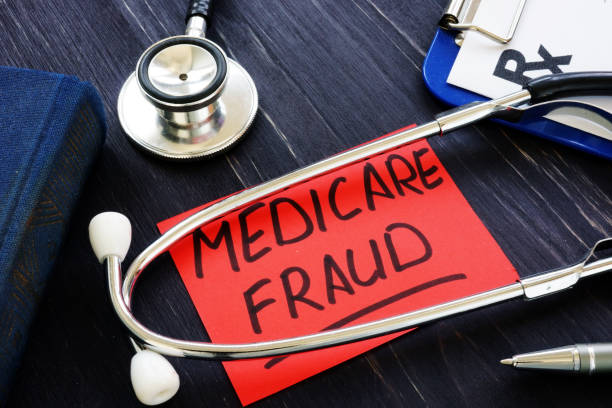Medicare and Medicaid fraud are illegal activities that involve intentionally deceiving or manipulating the Medicare and Medicaid programs in the United States. Medicare is a federal health insurance program primarily for individuals aged 65 and older, while Medicaid is a joint federal and state program that provides health coverage to low-income individuals and families.
Medicare and Medicaid fraud can take various forms, including:
Billing Fraud: Billing fraud is a common form of Hospice Medicare fraud. It involves intentionally submitting false claims or inflating charges for healthcare services or supplies that were either not provided or were unnecessary. Some examples of billing fraud include phantom billion, which occurs when a healthcare provider submits claims for services or supplies that were never provided.
They may create fictitious patients or submit claims using real patient information without performing the services. Upcoding also involves assigning a billing code to a service or procedure that reflects a higher complexity or cost than what was actually performed. This leads to higher reimbursement rates from Medicare or Medicaid.
Kickbacks: Kickbacks are another form of Medicare and Medicaid fraud. Kickbacks involve offering, paying, soliciting, or receiving illegal payments or incentives in exchange for patient referrals or purchasing goods or services covered by Medicare or Medicaid. Basically, healthcare providers may offer or receive kickbacks to induce the referral of Medicare or Medicaid patients. For example, a physician might receive illicit payments from a laboratory in exchange for referring patients for lab tests covered by the programs.
Besides, medical equipment, devices, or pharmaceutical suppliers may offer kickbacks to healthcare providers or organizations for purchasing or prescribing their products for Medicare or Medicaid patients. These kickbacks can take various forms, such as cash payments, gifts, or expensive trips.
Unbundling: Unbundling is a fraudulent practice where separate claims are submitted for services that should be billed together as a single procedure to obtain higher reimbursement rates from Medicare or Medicaid. Here’s a further explanation:
Certain medical procedures or services are designed to be billed as a comprehensive package, combining various components into a single billing code. This ensures that providers are appropriately reimbursed for the full range of services provided. However, unbundling occurs when providers deliberately separate these components and bill them as individual services, each with its own billing code.
Upcoding: Upcoding is a form of fraudulent billing in which a healthcare provider assigns a higher billing code to a service or procedure than what was provided or warranted. Upcoding aims to increase the reimbursement amount from Medicare or Medicaid.
Billing codes are used to identify and classify specific medical services or procedures. Each code corresponds to a particular level of complexity, resources used, or time spent on the service. The higher the code, the higher the reimbursement rate from insurance programs like Medicare and Medicaid.
Identity theft: Identity theft is a form of Medicare and Medicaid fraud where someone unlawfully uses another person’s Medicare or Medicaid information, such as their beneficiary number or personal details, to obtain reimbursement for healthcare services fraudulently. Here’s a further explanation:
In identity theft cases, individuals or organized groups unlawfully acquire and use someone else’s personal information to falsely pose as that person and exploit their Medicare or Medicaid benefits. They may fraudulently bill for healthcare services or supplies that were never provided to the beneficiary.
Billing for unnecessary services: Billing for unnecessary services is a part of Medicare and Medicaid fraud, where healthcare providers bill for services or supplies that are not medically necessary for the patient’s condition. This fraudulent practice involves performing or ordering procedures, diagnostic tests, or treatments beyond what is reasonably required for proper patient care. Here’s a further explanation:
Medicare and Medicaid programs cover healthcare services deemed medically necessary, meaning they are required to diagnose, treat, or manage a patient’s medical condition. However, billing for unnecessary services occurs when providers intentionally perform or order services that are not justified based on the patient’s medical needs.
Examples of unnecessary services can include excessive diagnostic tests, redundant imaging scans, unnecessary surgeries, or prescribing medications that are not appropriate for the patient’s condition. These practices can lead to unnecessary healthcare costs, potential patient harm, and exploitation of Medicare and Medicaid programs.
Key Takeaway
Medicare and Medicaid fraud defraud the government and harm taxpayers, increase healthcare costs, and potentially deprive patients of necessary care. The government and law enforcement agencies have established measures to detect, investigate, and prosecute instances of fraud to protect the integrity of these programs and ensure that funds are appropriately used to provide healthcare services to those in need.











